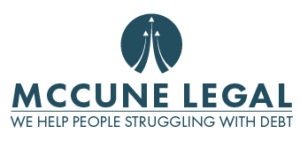Most people who are trying to dig their way out of insurmountable debts turn to bankruptcy for a fresh start. More often than not, they will opt to file for a Chapter 7 bankruptcy, which is known for its ability to discharge debts.
However, there are certain types of debt that do not qualify for discharge under the Chapter 7 bankruptcy code. So be sure you take note of these exceptions:
Most back taxes and customs
This generally includes income taxes, Social Security taxes and penalties you owe, or unpaid withholding tax for your employees.
Student loans
Contrary to what some might believe, filing for Chapter 7 bankruptcy will not make student loan debt disappear. However, if you can convince the court that the loans have caused an undue hardship, there is a possibility to have them discharged. This entails showing proof that you can’t afford to pay the student loans and that you have made a good-faith effort to repay them.

Child support and alimony
These payments are specifically not dischargeable under Chapter 7 bankruptcy. The importance of providing for minor children is recognized throughout state and federal court systems. For this reason, any child support debt will not be forgiven and you will be required to make up any overdue payments. Additionally, child support debt must be paid before other priority debts.
New credit card debt
Word to the wise, avoid going on a big shopping spree before filing for bankruptcy. The courts don’t appreciate it when individuals spend large sums of money when they are in debt and planning on starting a Chapter 7 bankruptcy case.
Debts from fraud or “willful and reckless acts”
If you incur debts as a result of acting illegally or irresponsibly, filing for Chapter 7 bankruptcy will not get rid of these financial burdens. This includes situations such as an injury caused by drunk driving.
Home mortgage and other property liens
If you have a lien on a property, it is not possible to have the mortgage discharged in bankruptcy. State laws vary, but as long as you keep making payments and avoid having more equity in the home than you are allowed to keep, you can generally avoid losing your home.
At McCune Legal, we understand there are always exceptions to the rule. This is why we have taken it upon ourselves to become trusted experts in the field of bankruptcy. It is our job to worry about every detail so you can focus on getting a fresh financial start.
You deserve to know all your options and to feel confident in your decision to file for bankruptcy. Contact us to get the conversation started.

